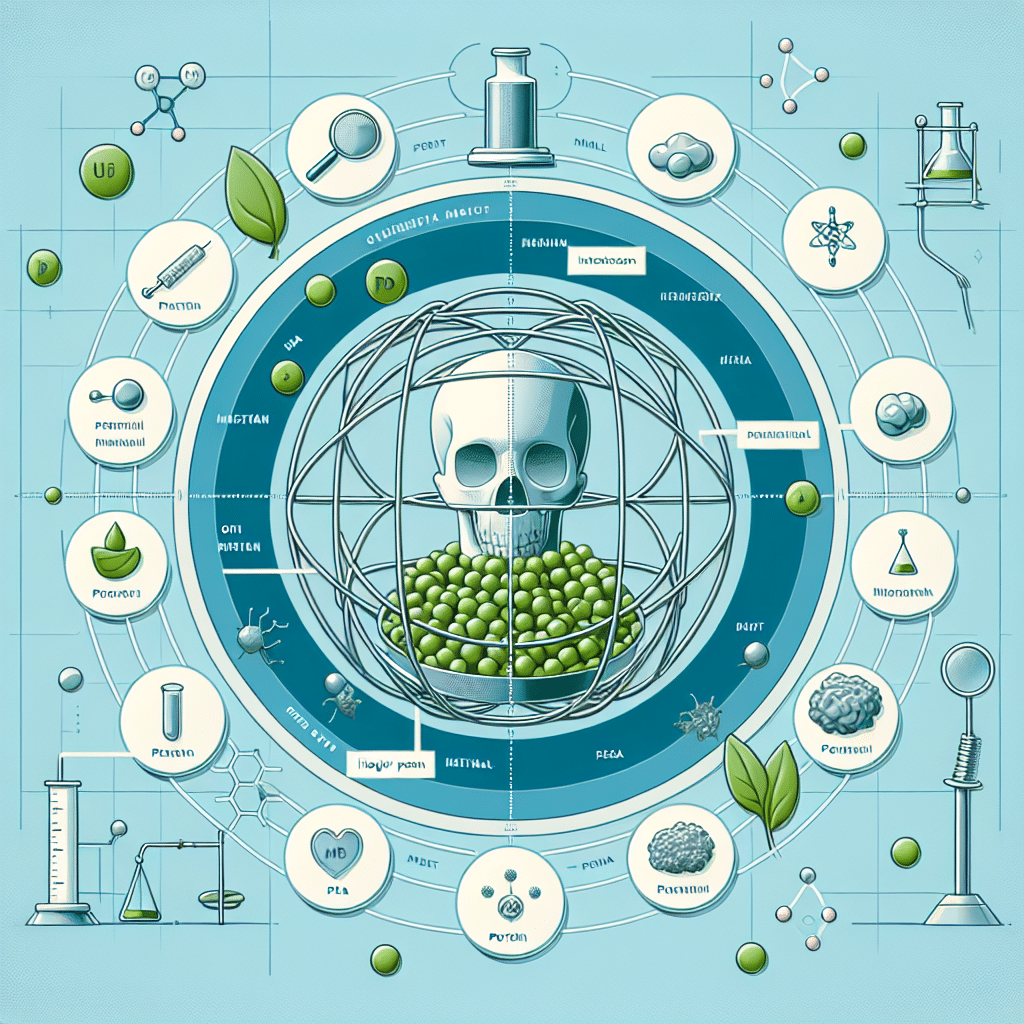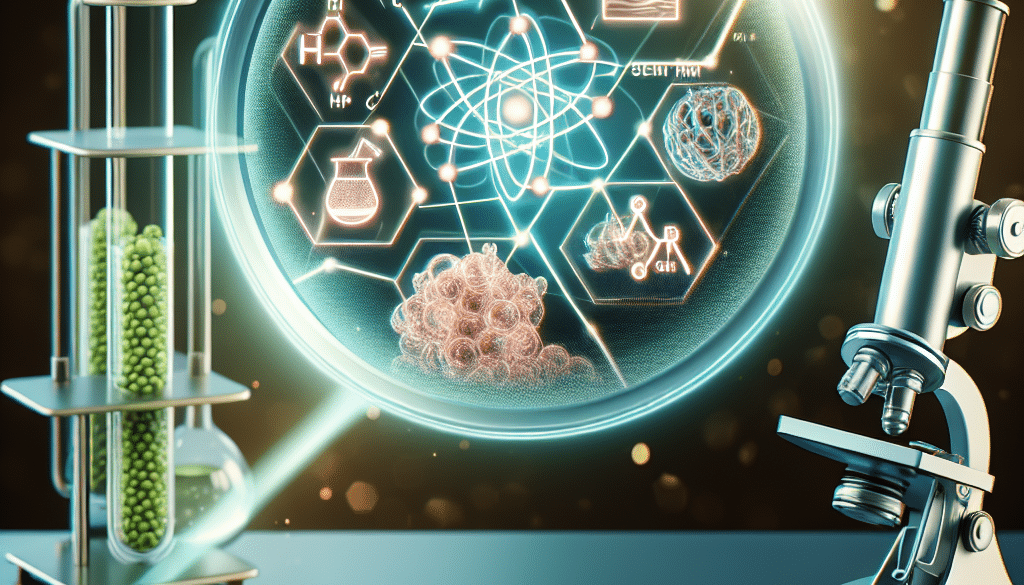Is there heavy metals in pea protein?
-
Table of Contents
- Heavy Metals in Pea Protein: A Comprehensive Analysis
- Understanding Heavy Metals and Their Impact on Health
- Sources of Heavy Metals in Pea Protein
- Research and Case Studies on Heavy Metals in Pea Protein
- Regulations and Safety Standards
- Best Practices for Reducing Heavy Metal Exposure
- Consumer Considerations When Choosing Pea Protein
- Conclusion: Balancing Benefits and Risks
- Discover ETprotein’s High-Quality Protein Products
Heavy Metals in Pea Protein: A Comprehensive Analysis

Pea protein has gained popularity as a plant-based alternative to animal proteins, especially among vegans, vegetarians, and individuals with dietary restrictions. However, concerns about the presence of heavy metals in pea protein have emerged, prompting consumers to question the safety and purity of these products. This article delves into the reality of heavy metals in pea protein, exploring the sources, potential risks, and the measures taken by manufacturers to ensure product safety.
Understanding Heavy Metals and Their Impact on Health
Heavy metals, such as lead, arsenic, cadmium, and mercury, are naturally occurring elements that can be found in the environment. While some heavy metals are essential for human health in trace amounts, excessive exposure can lead to toxicity and various health issues. Chronic exposure to high levels of heavy metals has been linked to neurological disorders, kidney damage, and increased risk of cancer.
Sources of Heavy Metals in Pea Protein
Heavy metals can contaminate pea protein through various sources:
- Soil Contamination: Plants absorb minerals and other substances from the soil. If the soil is contaminated with heavy metals, these can be taken up by the peas used to make pea protein.
- Water Supply: Irrigation with water containing heavy metals can lead to accumulation in plants.
- Agricultural Practices: The use of certain pesticides and fertilizers may introduce heavy metals into the crop.
- Processing and Manufacturing: Contamination can also occur during the processing and manufacturing stages if equipment or storage facilities are tainted with heavy metals.
Research and Case Studies on Heavy Metals in Pea Protein
Several studies and independent tests have been conducted to assess the levels of heavy metals in pea protein products. For instance, the Clean Label Project released a report highlighting the presence of heavy metals in some of the top-selling protein powders, including those made from peas. While the levels varied, some products did show detectable amounts of heavy metals.
It’s important to note that the presence of heavy metals in pea protein does not necessarily indicate a health risk. The levels found in these products are often below the thresholds set by regulatory agencies such as the US Food and Drug Administration (FDA) and the European Food Safety Authority (EFSA).
Regulations and Safety Standards
Regulatory bodies have established maximum allowable levels for heavy metals in food products to protect consumer health. Manufacturers of pea protein are required to comply with these standards and often implement rigorous testing to ensure their products are safe for consumption.
Best Practices for Reducing Heavy Metal Exposure
Manufacturers and consumers can take steps to minimize the risk of heavy metal exposure:
- Soil Testing and Management: Farmers can test soil for heavy metals and use strategies to reduce their presence, such as crop rotation and the use of clean compost.
- Water Filtration: Using filtered water for irrigation can help prevent heavy metal uptake by plants.
- Choosing Certified Organic: Organic certification often involves stricter standards for heavy metal levels in soil and water.
- Third-Party Testing: Manufacturers can have their products tested by independent labs to verify that heavy metal levels are within safe limits.
Consumer Considerations When Choosing Pea Protein
When selecting a pea protein product, consumers should consider the following:
- Look for transparency in labeling and third-party testing results.
- Choose products from reputable brands that adhere to strict quality control measures.
- Consider organic pea protein options, which may have lower heavy metal levels due to organic farming practices.
Conclusion: Balancing Benefits and Risks
While the presence of heavy metals in pea protein is a valid concern, it is essential to balance the potential risks with the benefits of incorporating plant-based proteins into one’s diet. By choosing high-quality products from trusted manufacturers and being aware of the sources of heavy metals, consumers can make informed decisions about their protein intake.
Discover ETprotein’s High-Quality Protein Products
If you’re looking for safe and high-quality pea protein, consider ETprotein’s offerings. Their commitment to quality ensures that their pea protein is not only organic but also rigorously tested for heavy metals and other contaminants. With ETprotein, you can enjoy the benefits of plant-based protein with peace of mind.
About ETprotein:
ETprotein, a reputable protein and L-(+)-Ergothioneine (EGT) Chinese factory manufacturer and supplier, is renowned for producing, stocking, exporting, and delivering the highest quality organic bulk vegan proteins and L-(+)-Ergothioneine. They include Organic rice protein, clear rice protein, pea protein, clear pea protein, watermelon seed protein, pumpkin seed protein, sunflower seed protein, mung bean protein, peanut protein, and L-(+)-Ergothioneine EGT Pharmaceutical grade, L-(+)-Ergothioneine EGT food grade, L-(+)-Ergothioneine EGT cosmetic grade, L-(+)-Ergothioneine EGT reference grade and L-(+)-Ergothioneine EGT standard. Their offerings, characterized by a neutral taste, non-GMO, allergen-free attributes, with L-(+)-Ergothioneine purity over 98%, 99%, cater to a diverse range of industries. They serve nutraceutical, pharmaceutical, cosmeceutical, veterinary, as well as food and beverage finished product distributors, traders, and manufacturers across Europe, USA, Canada, Australia, Thailand, Japan, Korea, Brazil, and Chile, among others.
ETprotein specialization includes exporting and delivering tailor-made protein powder and finished nutritional supplements. Their extensive product range covers sectors like Food and Beverage, Sports Nutrition, Weight Management, Dietary Supplements, Health and Wellness Products, and Infant Formula, ensuring comprehensive solutions to meet all your protein needs.
As a trusted company by leading global food and beverage brands and Fortune 500 companies, ETprotein reinforces China’s reputation in the global arena. For more information or to sample their products, please contact them and email sales(at)ETprotein.com today.














